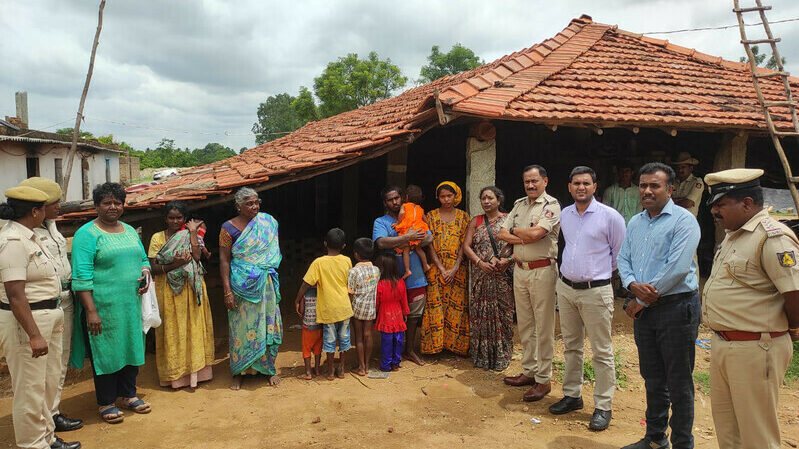Anti-Trafficking Coalition Frees Two Families from a Violent Brick Kiln
Labor Trafficking
BANGALORE, INDIA – When members of an anti-trafficking coalition in Karnataka state heard about violent abuse at a local brick kiln, they quickly sprang into action.
Together with police and government officials, they helped rescue two families who had been trafficked across the country and forced to work in shockingly violent conditions for two years.
Today, those families are resettling safely at home at last—as one man shared with relief, “I am able to just freely breathe, now that we are out of that jail.”
Terrifying Violence at a Brick Kiln
This case began when a desperate father managed to escape the brick kiln where he, his mother, wife and three children had been held for the last two years.
In early 2020, his family and another had been lured to the brick kiln from Odisha[1] with payment advances of 30,000 rupees each (about $400) and the promises of fair wages in southern India. Once they arrived, however, the women were barred from leaving the kiln at all and the men were closely watched.
Every day, these families were forced to make 1,000 bricks under frequent verbal abuse and physical violence. They were paid only 300 or 400 rupees per family each week (about $4), which was barely enough for basic food. They had no protection from the dangerous work at the kiln, and even the children were often left injured and without access to medical care. The owner even forced one woman back to work just 10 days after she gave birth to a baby boy.
Unable to bear this torture from the owner, the families tried to escape to a neighboring state in early 2022. But the owner caught them soon after, dragged them back, and beat them violently. One of the men was even tied to a tree and beaten with metal pipes.
Meanwhile, the kiln owner also started claiming that their payment advance was actually a debt to repay—which he had also ballooned to 127,000 rupees (about $1,600) with false interest. The families felt hopeless that they could ever escape his brutal control.
Mobilizing an Urgent Rescue Operation
Sensing no other options, one of the men risked escape again and sought help from community members. They connected him with the Mukti Alliance, a network of 60+ organizations and concerned citizens working to end trafficking in the state of Karnataka.
Armed with his powerful statement, Mukti Alliance members appealed to senior leaders at the Department of Rural Development and Panchayat Raj (RDPR), which is the state’s authority on bonded labor issues.
On June 22, these government officials assembled a team and traveled to the kiln to investigate the claims. Shocked by the family’s living conditions and reports of violence, they immediately brought ten victims to safety and took the kiln owner into police custody. Police filed their official report within two hours—an incredible sign of their progress on the issue—and included potential charges for bonded labor and human trafficking.
Returning Home at Last
The two survivor families (five adults and five children) were brought to safety at a government office, where they received medical care, health check-ups, and Release Certificates to mark their freedom. They also received compensation of 30,000 rupees from the government within six days—another speedy indicator of the government’s sensitivity and proactivity.
Mukti Alliance members also advocated for the government to escort these families back to their hometowns in Odisha, so they can also be introduced to authorities in those communities for their ongoing protection.
IJM will continue to support the families as they resettle at home in Odisha through our two-year rehabilitative aftercare program. With help from trained social workers, these families can recover from trauma, find dignified work, learn new skills, and build a safer future for their children.
[1] This case highlighted a common trafficking route between the states of Odisha and Karnataka. Many families from Odisha are pushed into risky migration due to extreme weather and inconsistent work in their home state. Traffickers then lure these laborers to the state of Karnataka and rapidly growing cities like Bangalore. IJM teams in both states are working to protect communities vulnerable this way—whether in source states or destination states.